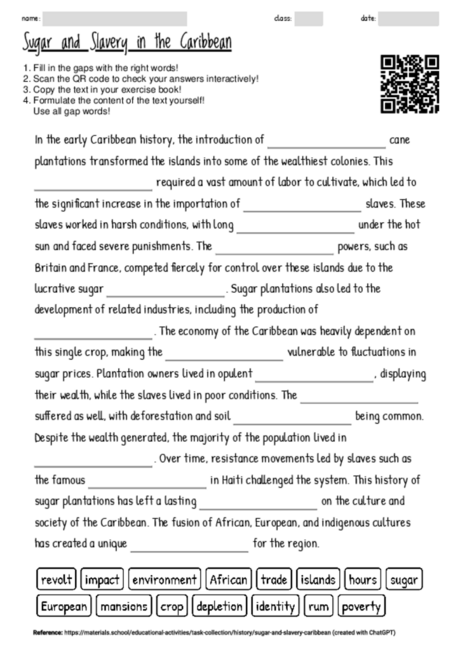Sugar and Slavery in the Caribbean
The cloze text on the role of sugar plantations in early Caribbean history serves as a multifaceted educational tool, bridging gaps in understanding complex socio-economic and historical dynamics. It highlights the interdependence of economy, environment, and society, making it suitable for interdisciplinary learning. The text promotes critical thinking by encouraging students to identify key terms that are pivotal in understanding the narrative's context, fostering engagement with the material. This method of learning can enhance vocabulary and comprehension skills, particularly useful in the study of history where understanding terminology and its significance is crucial. The cloze technique also supports memory retention by requiring learners to actively recall information. Furthermore, the text can be used in various phases of learning, from introducing new concepts to reinforcing previously taught material. It is especially beneficial in group discussions, where students can collaborate to fill in the blanks, promoting peer learning and communication skills. Lastly, the text's content, dealing with the effects of colonialism, slavery, and economic exploitation, offers a comprehensive view that can encourage empathy and a deeper understanding of historical injustices, making it not only an educational tool but also a means of developing social awareness among young learners.

